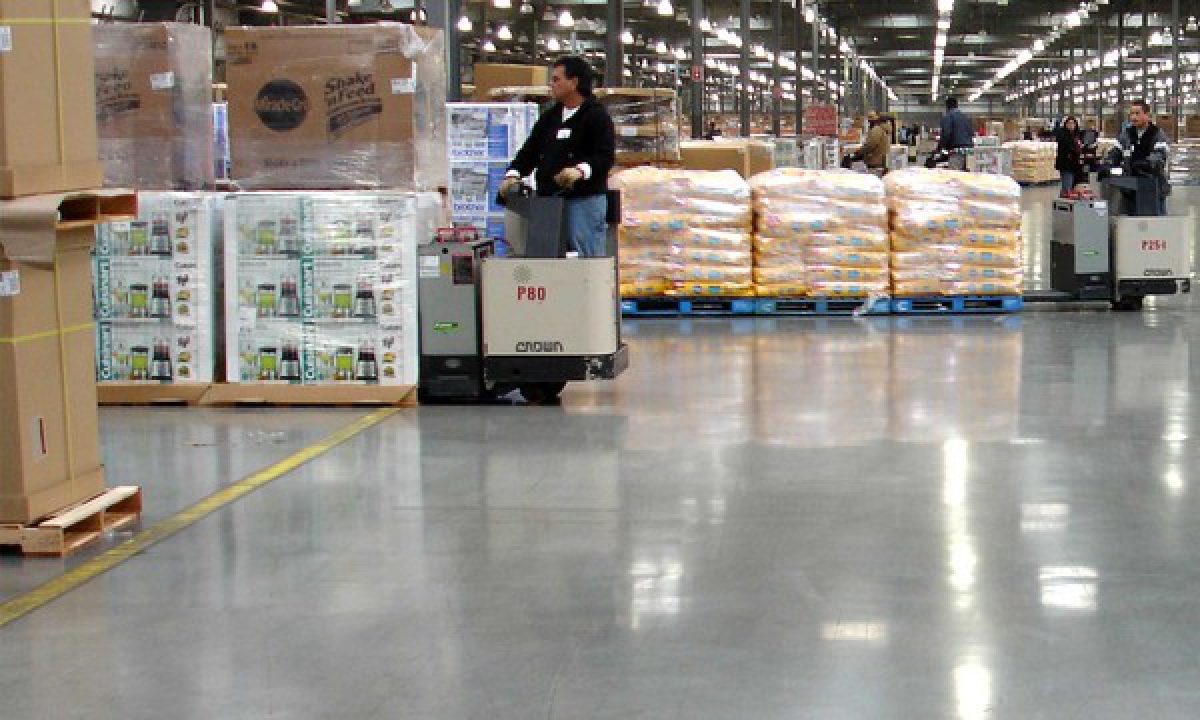The Impact of Heavier Loads and Harder Forklifts and Pallet Rider Trucks Wheels on Concrete Floors
Over the last several years, industrial facilities have been using forklifts and pallet rider trucks to move heavier and heavier loads. To compensate for this, wheels have become harder in order to extend the life of the equipment. If the concrete floor isn’t installed or finished properly, however, these heavier loads and harder forklift and pallet rider truck wheels can wreak havoc on each other.
Not only can this cause disruption and delays to production of a facility, but it can also increase the need for backup equipment. Both cost the facility owner money that could have been saved if the floor contractor simply designed the floor properly with heavier loads and harder equipment wheels in mind.
How Equipment Damages Floors
The main reason equipment damages a floor is because of defects in the floor itself. If there’s an underlying problem in the slab or finish, high traffic from forklifts and pallet rider trucks can cause faster deterioration. This can be in the form of higher abrasion on the floor surface or increased joint damage and is especially true for equipment with harder wheels and heavier loads.
How Floors Damage Equipment
The damage goes both ways. Things like floor defects, poor finishing, improper pouring and curled slabs with improper or no load transfer devices can damage equipment as well. As a forklift or pallet rider truck with harder wheels and heavier loads travels over joints and other bumps, it puts more stress on the wheels and frame, shocking the entire piece of equipment and potentially damaging the onboard computer. Not to mention the effects this jarring has on the operator and his operating system. Overall, floor bumps, holes and other defects leave equipment and operators at a higher risk for maintenance issues, human resource issues and reduced or slower production.
Forklifts, pallet rider truckers and employees injury claims are important, so preventing equipment damage and maintaining employees health is especially important for facility production and keeping costs under control.
How a Floor Contractor Compensates for Both
Proper floor installation is key to preventing damage for an industrial facility’s floor and the equipment it uses. The right floor contractor will deliver a highly durable floor that can withstand the impact of heavier loads and harder forklift and pallet rider truck wheels in the following ways:
- Reducing the number of overall joints and control joints: By having up to 90% fewer joints, a concrete floor will have less opportunity for failure and equipment damage.
-
- Using armored joints as needed: If the concrete slab uses shrinkage-compensating concrete or requires extra protection, armored joints can add extra durability and help with load transfer.
-
- Better finishing and abrasion-resistance techniques: The right floor contractor won’t cut corners when it comes to finishing. That means both power and hand troweling for a highly durable, burnished finish and extremely flat surface.
-
Heavier loads and harder forklift and pallet rider truck wheels can have a big impact on your industrial concrete floor. Hiring the right floor contractor will ensure it doesn’t affect your bottom line.

